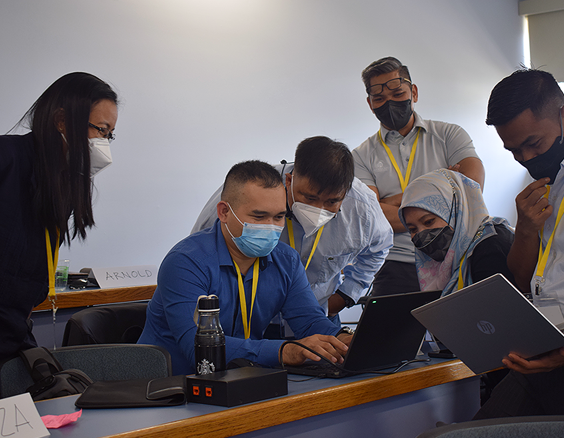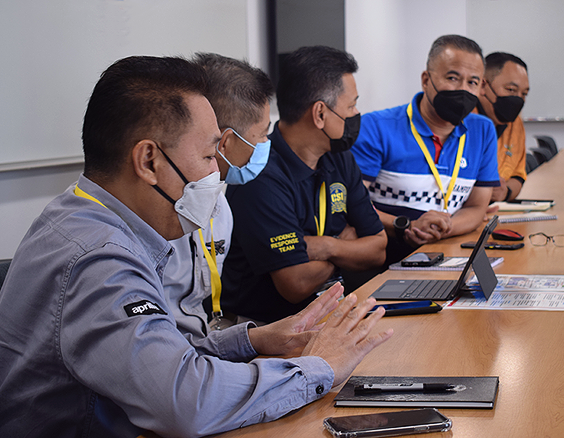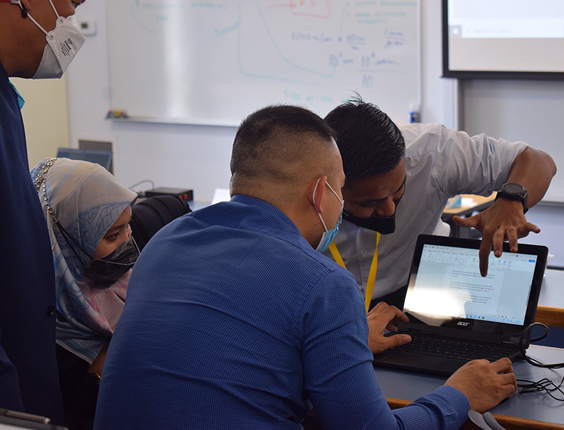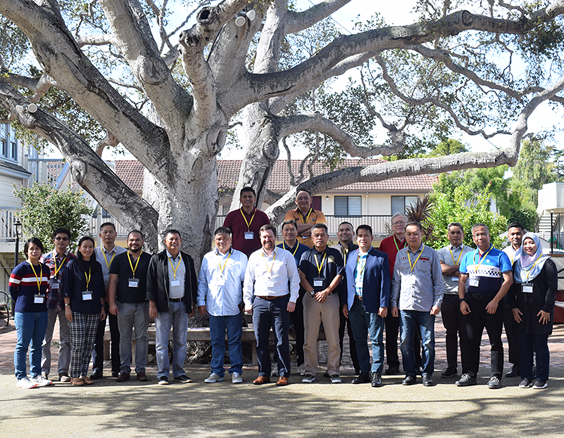September 16, 2022
Kaitlin Emmons and George Moore
Eighteen senior and mid-level government employees from Malaysia and the Philippines traveled to the Middlebury Institute of International Studies in Monterey, CA for a two-week in-person workshop on WMD Terrorism Threats: Assessing and Prosecuting training program with the James Martin Center for Nonproliferation Studies (CNS). The workshop, sponsored by the U.S. Department of State’s Office of Weapons of Mass Destruction Terrorism (WMDT), enhanced participant’s law enforcement investigative capabilities to prevent terrorist acquisition of WMD weapons, uncover and disrupt potential plot attacks, and prosecute the cases. Prior to attending, workshop participants completed pre-workshop reading assignments designed to ensure all participants had a basic background in the workshop subjects.

CBRNe
Topics explored during the workshop included threats of Chemical, Biological, Nuclear, Radiological, and explosives (CBRNe). Participants were introduced to a commonly used threat assessment model and used the model throughout the workshop. The workshop explored technical, policy, and legal issues involved in these types of threats. Lectures and case studies provided participants with a working understanding of the history of CBRNe threats, as well as current and evolving potential threats in the various areas.

Participants collaborated in several CBRNe case studies and practiced analyzing evidence from technical, operational, and behavioral points of view. Initial and follow-on information was provided during the case studies in a manner that simulated the development of actual incidents. Participants discussed potential policy concerns and shared how the issues would play out in their countries legal systems. Similarities and differences of the laws and regulations that could be used to prosecute perpetrators of WMD/CBRNe attacks in each country were shared and analyzed through political, economic, medical, and security lenses.
The Workshop
Class discussions facilitated an exciting and insightful dialogue between participants from both countries and created a unique space for bilateral deliberation and collaboration. In addition, the workshop program provided an extensive networking opportunity for participants to problem solve with professionals across sectors that might not regularly interact.

The workshop program was developed by Dr. George Moore of CNS who covered Radiological, Nuclear, and explosive threats and general issues. Dr. Allison Berke of CNS covered Chemical and Biological threats.
The James Martin Center for Nonproliferation studies would like to thank the Department of State for its continuing support of training programs that help CNS fulfill its mission of combatting the spread of weapons of mass destruction by providing training for nonproliferation specialists and disseminating information and analysis.

